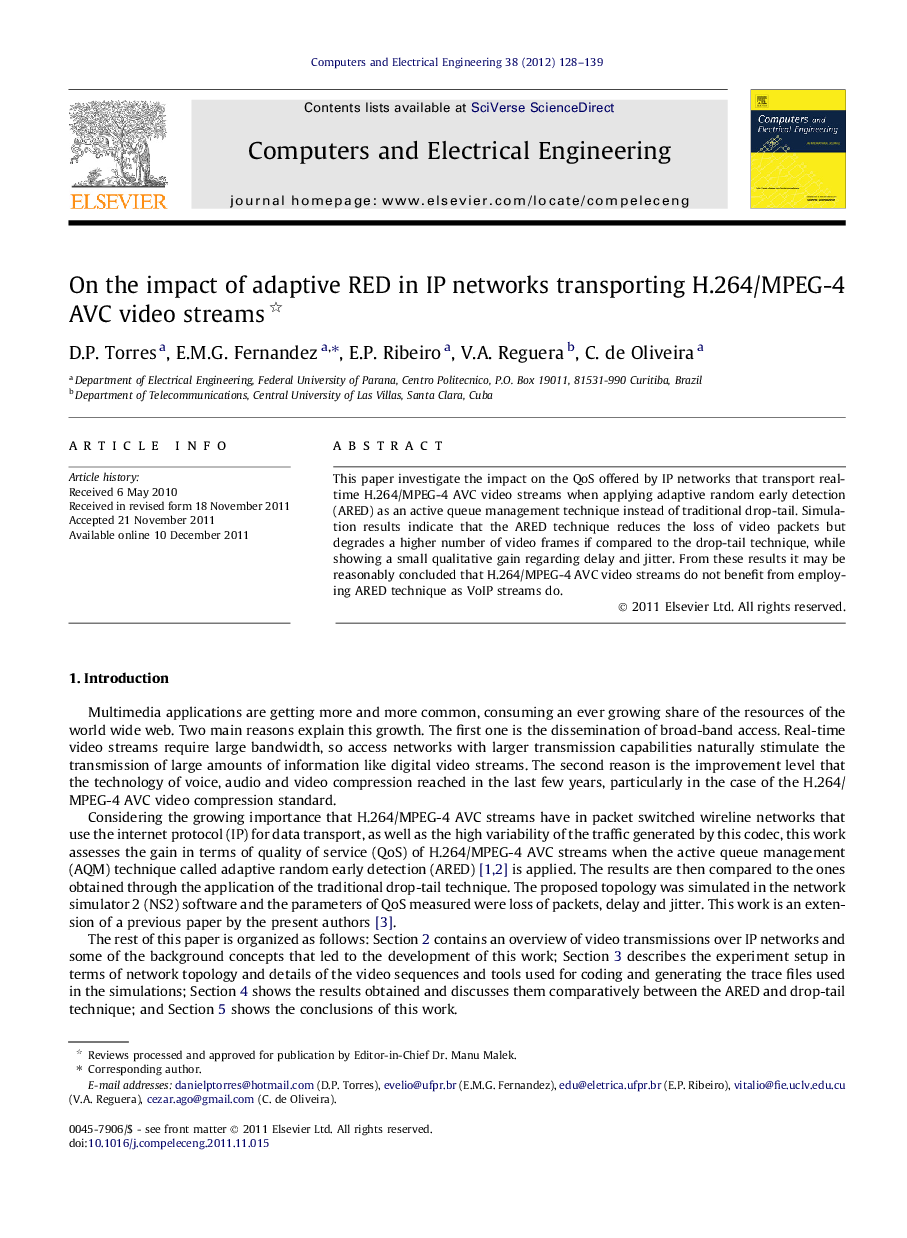| کد مقاله | کد نشریه | سال انتشار | مقاله انگلیسی | نسخه تمام متن |
|---|---|---|---|---|
| 453776 | 695013 | 2012 | 12 صفحه PDF | دانلود رایگان |

This paper investigate the impact on the QoS offered by IP networks that transport real-time H.264/MPEG-4 AVC video streams when applying adaptive random early detection (ARED) as an active queue management technique instead of traditional drop-tail. Simulation results indicate that the ARED technique reduces the loss of video packets but degrades a higher number of video frames if compared to the drop-tail technique, while showing a small qualitative gain regarding delay and jitter. From these results it may be reasonably concluded that H.264/MPEG-4 AVC video streams do not benefit from employing ARED technique as VoIP streams do.
Figure optionsDownload as PowerPoint slideHighlights
► We assessed the impact of ARED on real-time video streams through simulation.
► Reduction of delay and jitter represent a small gain on video quality.
► ARED reduced packet loss but increased the number of damaged video frames.
► H.264/MPEG-4 AVC video streams did not benefit from employing ARED technique.
Journal: Computers & Electrical Engineering - Volume 38, Issue 1, January 2012, Pages 128–139